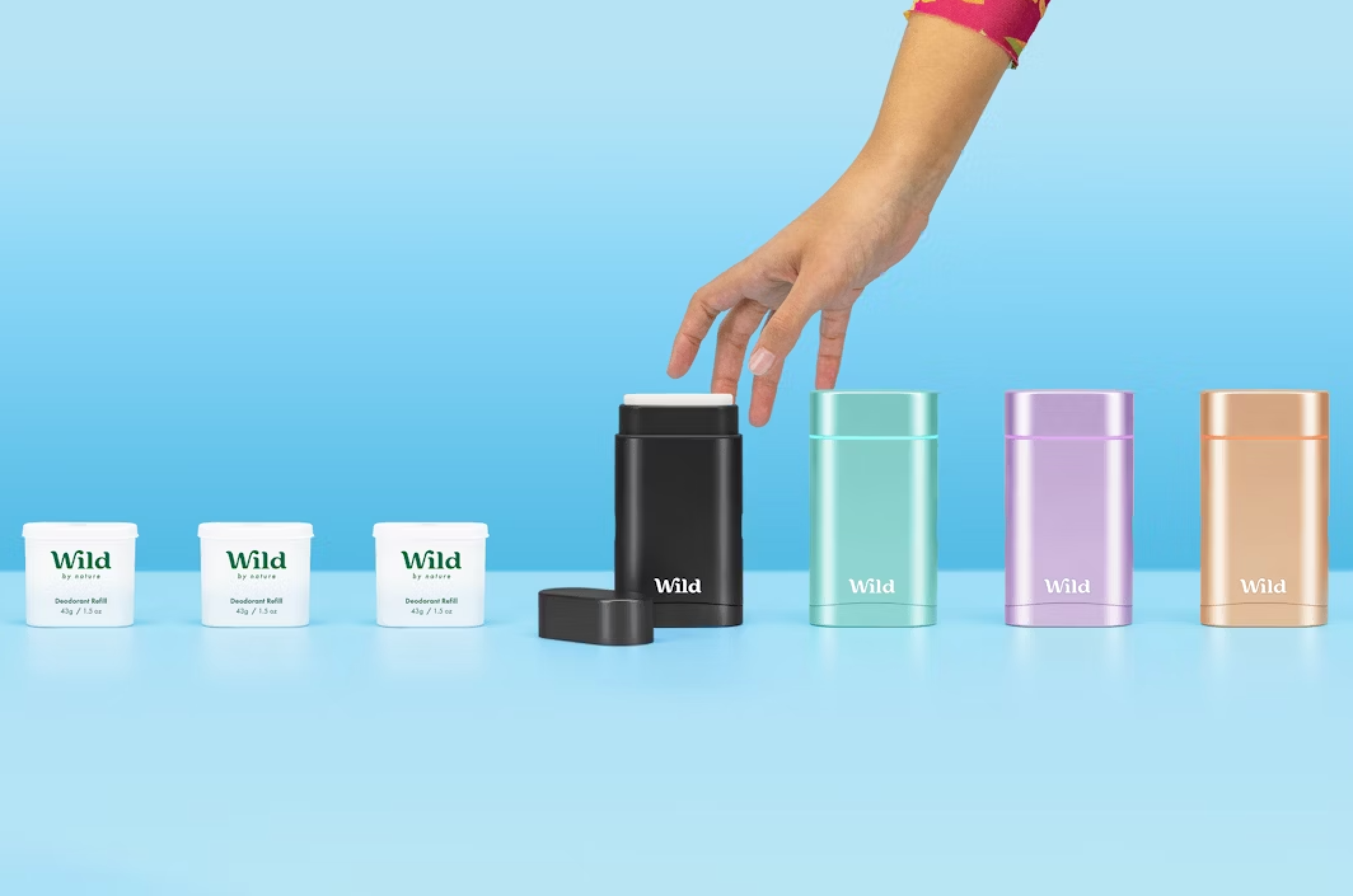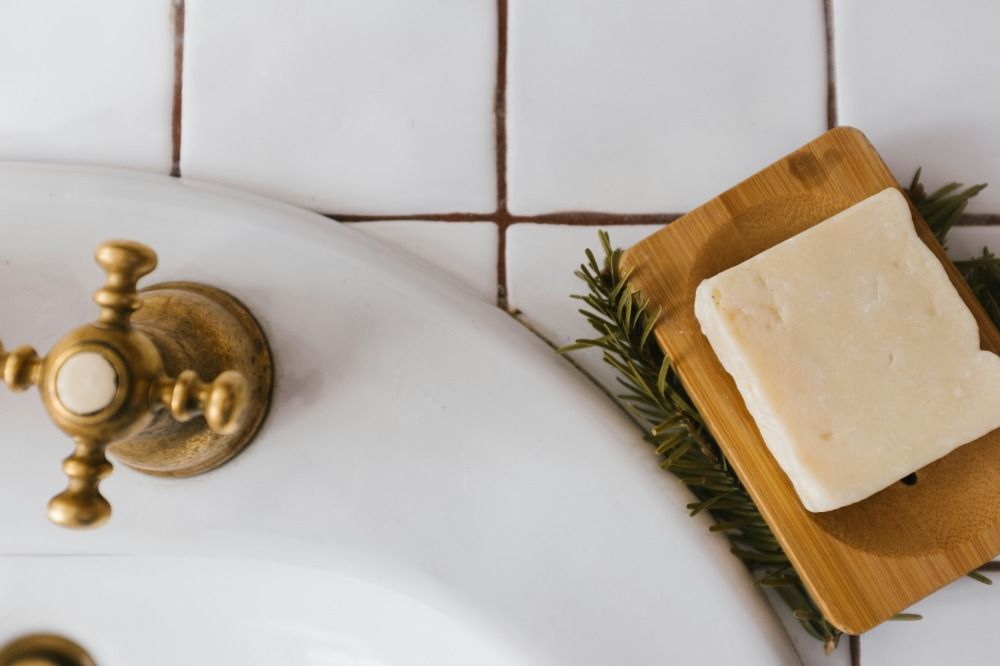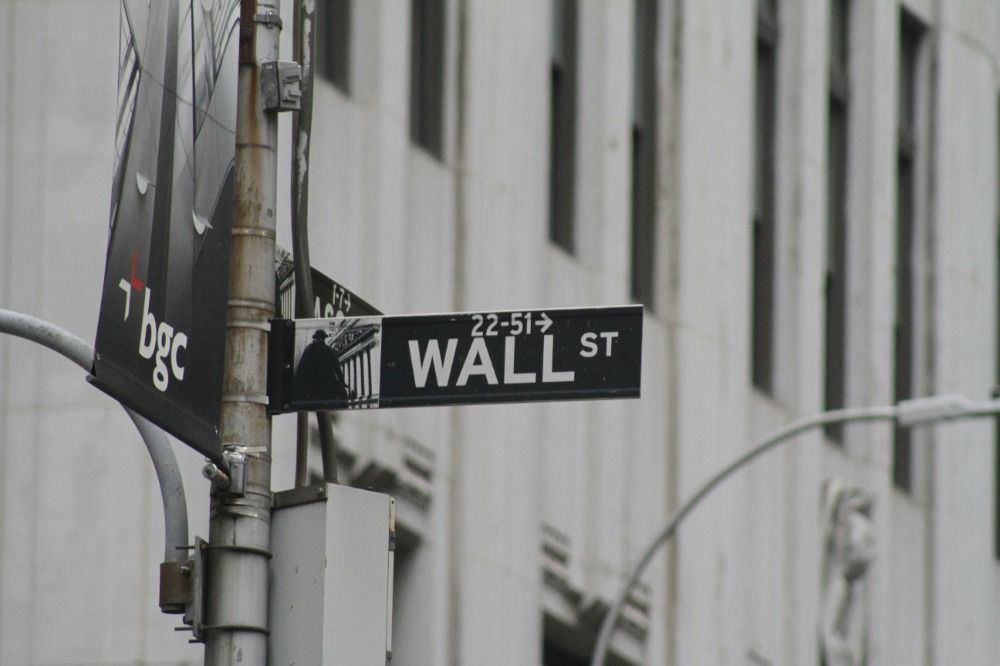How Pleasant State brought sustainable cleaning products to Australia
After struggling with a few health issues for many years, I began the process of ridding my home environment of toxins and plastics.
I started with my mattress and worked my way through basically everything — my pillows, curtains, carpets, cookware — you name it.
But when I got to my cleaning supplies, I hit a wall. I started searching for cleaning solutions on the market that would help me address my health issues, but I quickly realized the cleaning sector is highly unregulated.
Cleaning companies don't legally need to disclose ingredients so many don't. Which made it hard to know what ingredients were and the impact they were having on my health.
Through my research, I discovered many of the active ingredients in common supermarket cleaners are full of carcinogens, allergens, and sensitizers.
And, of course, when we’re done with the product, the bottles are made of plastic so we throw them away and they end up in landfill.
I tried to find an alternative product that lived up to my “no nasties” requirement, but it didn’t exist. I needed another option, and I knew I couldn’t be the only one. So, I decided I was going to go make it.
My co-founder Sian Murray and I started Pleasant State to create waste-free, non-toxic cleaning solutions. We had the mentality of, if not us, then who?
We saw how putting a huge focus on profits resulted in conflicting incentives surrounding sustainability. We set out to build a brand that balances people, the planet and profits
We built sustainability into the foundation of Pleasant State
I knew I wanted to build Pleasant State so we didn’t have to compromise on sustainability in order to become more profitable as we grew.
I came from a really lengthy corporate background, leading sustainability efforts for top companies.
One of my jobs was working with an ASX 100 firm on external sustainability reporting. I moved to Ernst & Young, where I was doing sustainability strategy. I understood how to take those practices and build them into a business from the get-go.
There were a lot of things I saw as corporations got bigger and bigger that didn’t really resonate with me.
They would start to place a huge focus on profits and forget the original intent of their organization, which was to provide value to their customers, their communities, and their employees.
To avoid the same pitfalls at Pleasant State, I wanted a strong foundation in place so that profits and ethics could go hand in hand.
Thanks to my background, I knew how to apply the B Corp model to meet rigorous social and environmental business standards for our company.
We still face ethical dilemmas, but we have a really strong decision-making framework to help illuminate which path we should take.
Sometimes, when we’re looking at ingredients and components for our products, the solution is still imperfect.
There aren’t always options available to us to create a perfect solution. We believe in progress over perfection and that we’re providing a better alternative to what consumers are being offered at the moment.
We sourced the best options for materials — even when the process took longer
When it comes to the raw materials that make up our cleaning products, we never stop at the first option that’s presented to us if it goes against our values. We keep searching until we find a solution that will work for what we believe in.
Every material has to meet our standards for sustainability. We won’t work with materials that have negative impacts on the environment or human health.
This often leads to a longer product development process, but we won’t stop working until we figure out a solution.
For instance, prioritizing plant-based ingredients is an important criteria for us. On a recent hand wash, we were up 50 versions before we agreed it was the right mix of ingredients.
With this mindset, we’ve struck a balance between the efficacy of our products and serving people and our planet. We’re leading the market in Australia because we don’t compromise throughout that process.
For other companies, it’s about finding the quickest solution. We are committed to search until we land on a solution we’re comfortable with.
For instance, I just spoke to our chemist about our next “just-add-water” dish wash detergent. He was presenting different options, and he said, “We can make it from a coconut-derived product, but that has sulfates.”
We know there are some issues with sulfates and their impact on human health. We could use a petroleum-based chemical, but that goes against our plant-based objectives. So, we have to keep digging. But if you keep asking, eventually, you can find a solution.
We manufactured locally to reduce emissions
We produce most of our products locally in Australia to reduce emissions and fulfill B Corp standards for sustainability.
Pleasant State is a proudly certified B Corporation, and one of the criteria for sustainability standards is to use suppliers and contractors as close as possible to your headquarters.
Any time we go to market for something that we can’t do, we always look to suppliers that are close to our headquarters. Then we’ll look across Queensland, and then we’ll go more broadly across Australia.
As a last resort, we’ll go international. For instance, we make our glass and silicone bottles overseas because there’s no supplier in Australia that will manufacture for us.
Their minimum-order quantities are huge, and they just can’t entertain startups. But everything else is manufactured locally. We formulate with a chemist who lives 30 minutes away.
Our headquarters and manufacturing facility was set up in Australia by three people who were really supportive of the Pleasant State journey.
Even the methodology we use to manufacture our products furthers our sustainability mission. Other concentrated cleaning products come in tablet form.
But we use extrusion methodology in our manufacturing to create concentrated cleaning bars instead, which allows us to achieve our “no nasties” claim.
There are often real business advantages to manufacturing locally, too. Here in Australia, Australian-made products provide us with a competitive advantage. Australians love products being made here.
And I live by just-in-time inventory management, so if our stock runs out, our manufacturer’s only 30 minutes away. We’ve avoided recent global supply chain shocks, which is a massive advantage to sourcing things locally.
We took our environmental impact as seriously as our profits
We’ve learned that we need to be proactive about pricing out healthier and more sustainable supplies for our products so that we can build them into our margins.
In conversations with suppliers, the first thing they’ll do is bring out their book and start at the lowest cost point.
If we’re discussing packaging, for example, they’ll say, “Here you go, this is your option.” I’ll always ask, “Why’d you start there?” And they’ll say, “Because that’s the cheapest one.”
But the cheapest options will cost your business, your customers, and your community in other ways — even if it’s not in cash.
Now, we start those conversations by asking for the best options in terms of environmental or health impacts.
Once we’ve established those, we start talking about price. But to do this successfully, you need a strong understanding of your target customer and how much they’re willing to pay. That way, you can effectively price out your products.
There’s also an important educational element to this approach. Your customers are going to realize that they’re spending more with you compared to other products in the market. But those products might be impacting the environment, or even their own health.
We’ve educated our customers that there’s a price to be paid somewhere down the line if we opt for cheaper materials instead.
They understand we’re shouldering some of that cost, so it isn’t passed down to the community or the environment.
3 key tips to start your own sustainability journey
We believe that you can have an impact-led business while becoming profitable and building a really valuable brand. Based on our own journey at Pleasant State, here are the steps we’d recommend to other eComm founders to create a sustainable brand.
1. Use B Corp’s Impact Assessment tool
If you’re just starting your business, we highly recommend enacting clear environmental, social, and governance (ESG) measures and guidelines for your company.
This will aid you in adopting a foundational approach to sustainability that touches every aspect of your brand — your people, your community, your supply chain, and more. The B Corp criteria is a great place to start.
Anyone can access B Corp’s Impact Assessment tool for free, and that’s exactly what I did when setting up the ESG framework for Pleasant State.
We just looked at all the criteria and said, “Yes, that’s important to me and achievable.” I used that as a framework to help guide all of the decisions we made.
You should use the Impact Assessment tool to create your own sustainability framework for your brand. Start from day one and use the tool to make key decisions around factors like suppliers, product components, and product ingredients.
2. Focus on what your customers are passionate about
You want to have a really good understanding of your customers and what they care most about as you’re making sustainability decisions.
Every brand’s customer base is unique; yours will have its own motivations and passions when it comes to sustainability.
Use what you know about your customers to inform which initiatives you implement first, whether that’s environmental impacts or community impacts.
Some customers are going to care more about reducing plastic waste above all else, so you’ll need to be extra conscious of that when choosing your packaging.
Others are more socially conscious and care deeply about ethical manufacturing practices. If that sounds like your customer base, you’ll want to invest in supply chain transparency.
3. Start small, then keep building sustainability as your company grows
Start with one particular area where you can be really purposeful and make it truly sustainable first, then expand to other areas of your business.
Otherwise, you may find it overwhelming to build an entirely sustainable product and a set of business processes behind it.
For example, start with your packaging and try to resolve some sustainability issues there.
Once you feel like you have fully sustainable packaging, expand your efforts to the product components. If you’re importing components, can you look at setting up some of the manufacturing locally?
As you grow and you have some more money, you can invest in more sustainable practices. So local manufacturing operations might come at a price, but perhaps you’re able to achieve cost reductions elsewhere. Or, maybe you’re able to increase your prices over time and build them into your margins.
Lay the groundwork for sustainability now — or you’ll be overlooked
We're seeing a shift of investments into impactful, purpose-led brands, and that will only continue to evolve. Capital is flowing in that direction because consumers are demanding more accountability from companies.
For many eCommerce companies, the younger generation is a core target market. We know that younger generations are demanding that businesses do better, be better, and provide better and safer products.
These customers are choosing businesses with firm sustainability principles, and they're willing to pay more to shop with those brands.
Take a holistic approach to sustainability and ensure those principles are embedded through a comprehensive ESG framework. You'll develop a loyal customer base and a valuable brand name.
Pleasant State is one of thousands of eCommerce startups that is successfully growing their brand thanks to support from Wayflyer. Book a call now to learn more about tailored funding options for your company.



